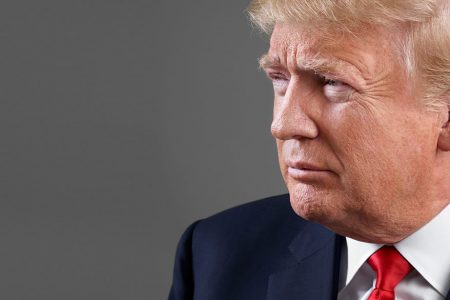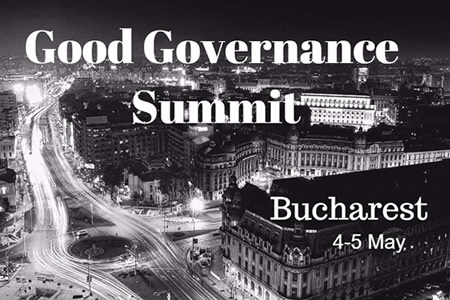… and why we need a Summit on Good Governance

The world is yet again at cross-roads. In the post-post-Cold war era, the “world risk society” i) thesis became more realistic than ever, proven by the multi-dimensional ubiquitous threats and risks, as the world is facing a type of “illiberal international order” ii). From the change in the source of insecurity, turmoil, ongoing civil wars and hybrid wars to failed states, from large humanitarian crises to environmental hazards and pervasive climate change threats, from the rising of populist and radical parties to the results of elections and referenda that frame more devised societies and shatter the international dynamics, from the ubiquitous terrorist threats to a time when fake-news thrive, the current international context depicts a plight, in which the state as the traditional provider of security proved its limits. The common denominator of these realities is the failure of the state to understand the multidimensional concept of security and to live up its responsibility to protect its citizens, while the individuals as humans are the main fatality. At the same time, the international community, who assumed the responsibility to assist the state in the process of protecting its citizens, has long proved impuissant.
Hence, the era of “post-modernity” iii) and “post-truth” brings challenges to the ontological core of security and for the structure and the dynamics of the international security as we know it. In these times of increasing interconnected threats and of structural violence iv), when the security of the individuals worldwide is at risk and the national states borders become obsolete, it is high time to inquire the system of global governance and the conditions of good governance. In doing so, the introspection on what led to this situation can gives us a prescriptive and proactive perspective on the future. On a closer look, the problem stands in the inadequacy of the strategy and means envisioned by the state for providing security to the current realities. This means an incapacity or refuse of the state structures to incorporate in its governance the feedback of changing international realities. While the risk and threats became globally interconnected after the end of the cold war, and the number and type of international actors increased, with an interaction of communities and individuals at an unprecedented level, state remained stuck in the traditional military-state centered paradigm of security. In this context, focusing on the survival of the state as abstract entity, instead of taking a closer look to the locus it derives its legitimacy from, the individual, is obsolete and counterproductive. Hence, this lack of flexibility in adapting to fast changing realities and in understanding the systemic dynamics generated the failure of states to provide security, both from the outside and from within, being a mark of “bad governance”, under all its forms.
But what makes good governance? It’s been long over two decades since the human security paradigm, which puts the individual at the center of security against economic, food, health, environment, personal, community, and political threats v) was advocated, in order to ensure “freedom from fear and freedom from want in the context of human dignity” was launched. The paradigm reloads the social contract, in which the individual should be at the center of security. Therefore, a system of good governance should protect the individuals from all these multidimensional global threats, both within and from outside the state.
Yet, in the context of mutual vulnerability vi), the state is unable to provide protection to its ruled and good governance by itself, which means that it must engage in a system of cooperation and good global governance, in order to reduce threats and ensure peace. However, this have been long the goals of the international cooperation starting with the creation of the United Nations, but yet, the international community has failed to ensure protection to its citizens, facing a post-modern crisis. As the threats, challenges and tensions are at a peak, the manner of the international community of thinking peace should also be questioned. The current realities show that working for negative peace (the absence of war) is no longer an option for having harmony and security, but the higher goal of building positive peace, by adopting a proactive preventive attitude, centered on the source of state legitimacy, the individual as the referent of security, could appease the current tensioned trend.
Therefore, the overarching challenges of good governance come both from within and outside the state, as the world is highly interconnected. To provide good governance in the era of post-truth and post-order, a realistic assessment of the current realities and the revisal of the lesson of history are essential, while the adaptability and proactive preventive policy are vital. In times of tensions and looking for stability, it is imperative to remember that “states are not sovereign. Humans are. Not only states need security. Humans do”. vii).
i) Beck, Ulrich. Risk Society. London: Sage Publications, 1992.
ii) Munich Security Report 2017 – Post-truth, Post-West, Post-order?, Munich Security Conference.
iii) Beck, Ulrich, and Daniel Levy. “Cosmopolitanized Nations: Re-imagining Collectivity in World Risk Society.” Theory, Culture & Society 30(2), 2013: 3–31, p. 9.
iv) Galtung, Johan. “Violence, Peace, and Peace Research.” Journal of Peace Research, Vol. 6, No. 3, 1969: 167-191.
v) UNDP. Human Development Report 1994. New York: Oxford University Press, 1994.
vi) Tigerstrom, Barbara von. Human Security and International Law. Prospects and Problems. Oxford and Portland: Oregon Hart Publishing, 2007.
vii) Galtung, Johan. “Human Needs, Humanitarian Intervention, Human Security and the War in Iraq.” February 25, 2004.




